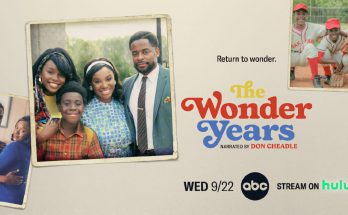“Things Heard & Seen” has just been released on Netflix, but did you know it’s based on a book called “All Things Cease to Appear” by Elizabeth Brundage? Yep, it’s true! With family drama, ghosts, and an ongoing murder mystery, this 449-page book is amazing, and the movie surely will be too, especially considering Amanda Seyfried stars in it. For more information on what the book is about, some spoilers (if that’s your thing!), and important themes the book illustrates, keep reading.
Book Summary
At the beginning of the book, George Clare finds his wife Catherine murdered, an ax in her head. He doesn’t know who did it, but he works with police on the case.
The book then flashes back to George’s and Catherine’s lives as individuals and as a couple. Along with their young daughter, Franny, the two move to a farmhouse in Chosen, New York. However, Catherine isn’t aware that the house used to be inhabited by a tragedy-stricken family, in which the parents died and left their three boys behind. George and Catherine struggle with not only the haunted nature of the house, but their broken relationship as well.
We also get to read more about the boys’ family and their lives, which consisted mostly of abuse. The boys greatly miss their mother, and their rest of their childhood is spent with their uncle.
Finally, the two stories converge when the three boys occasionally visit their old house, the Clare’s current residence. They build a friendship with Catherine and work on her home while George is at work or cheating on her with a vulnerable girl named Willis.
Catherine begins to learn more and more secrets about her house, and her husband, eventually coming upon the realization that her life and her husband aren’t exactly what or who she thought they were. The book then circles back around to her murder, ending with a small bit of justice.
Spoilers
The main spoiler in “All Things Cease to Appear” centers on the key question that nags you throughout: Who killed Catherine, and why?
While the answer is never explicit, we as readers can confidently conclude George was the murderer. This is for a few reasons: Other than the town’s assumptions, other “evidence” of sorts surrounds the murder.
First, Catherine was killed the morning after she tried to leave George, in which she planned to take Franny with her. Second, George clearly has problems with anger and narcissism, and even killed his boss when he found out George lied about his qualifications. And third, when Franny is an adult, she finds a letter that Catherine wrote to her mother about leaving George. At the end of the letter, Catherine wrote that if something happened to her, to not assume it was accidental.
Then, the final spoiler: the not-really-justice happens. After Franny turns the letter into the police, Willis, the new district attorney, writes to George about the recent evidence. He then essentially dies by suicide, drowning in the ocean.
Important Lessons
While this book contains several meaningful themes and lessons, here are two that stuck out most to me:
What is true can’t always be seen. Time and time again, the characters know what the truth is, even though they haven’t physically seen it. For example, the people in Chosen know George killed Catherine, but they can’t exactly prove it. Catherine has a gut feeling that George cheated on her, but she hasn’t watched it happen. Catherine also hasn’t seen God, but unlike George, she believes God is real.
Women deserve to (and can) live free, passion-driven lives. As a perfectionist and people-pleaser, Catherine works hard to maintain a perfect house, a perfect life, and a “perfect” body. However, as she watches her friend Justine’s carefree nature and hears some of Adrienne Rich’s poems, she realizes she doesn’t have to fit into society’s “rules” and expectations. As Catherine writes in a letter to her mother, she can live a liberated life in an “imperfect” body. She can pursue self-pleasure, live her life naturally, and worry less about flaws. While messages like these aren’t discussed much until the end, they’re worth the read.



